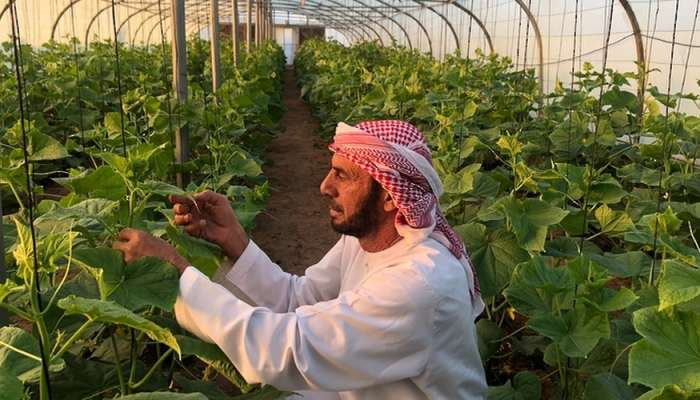The Sultanate of Oman recently celebrated Oman Agriculture Day on October 31, highlighting the importance of trees in life and raising awareness about the significance of the agriculture sector in providing food to people. The Ministry of Agriculture, Fisheries and Water Resources in Oman has implemented various policies and programs to enhance food security, focusing on agriculture, fisheries, and water resources. According to the 2023 annual report issued by the Ministry, Oman boasts 5.5 million acres of agricultural land, representing 7.5 percent of the total land area in the country.
The report also indicated that the plant sector in Oman benefits from environmental and climatic diversity, with a strong infrastructure supported by 26 research centers, 18 agricultural quarantines, and a total cultivated area of 293,000 acres in 2023. The agricultural products and fish imports for the year amounted to OMR1,295 million with an average growth rate of 11 percent, while agricultural and fish exports reached OMR403 million with an average growth rate of 14.4 percent. The self-sufficiency rates for basic commodities like vegetables, dates, fruits, and others were also highlighted in the report.
Furthermore, the Ministry’s Food Security Laboratories Programme, in collaboration with various stakeholders, aims to develop investment projects in food production and modern technologies, increase job opportunities for Omanis, and support local content. The Ministry also focuses on providing basic food commodities, ensuring their storage, and maintaining stability in food prices, especially during emergency situations like crises and exceptional climate conditions. Additionally, efforts are made to combat agricultural and animal pests and diseases, preserve plant and animal genetic resources, and provide scientific data to support the food security system.
The report mentioned numerous research centers and projects undertaken by the Ministry, such as the Palm Research Centre for Plant Production and the Plant Protection Research Center, which focus on horticulture, crop research, seed research, plant genetic resources, plant disease research, agricultural insect research, and more. Development projects for agricultural and animal research include the national strategy for advancing date palms and increasing palm seedling productivity through tissue culture laboratories. Integrated crop pest management projects, desert locust control projects, and guidance and control initiatives are also part of the Ministry’s efforts to enhance food security and promote sustainable agriculture practices.
In conclusion, the Ministry of Agriculture, Fisheries and Water Resources in Oman plays a crucial role in promoting food security, sustainability, and innovation in the agriculture sector. Through various policies, programs, and research initiatives, Oman aims to enhance agricultural productivity, combat pests and diseases, preserve genetic resources, and ensure the availability of basic food commodities. By celebrating Oman Agriculture Day and highlighting the importance of trees in life, the Ministry seeks to raise community awareness and highlight the significant contributions of the agriculture sector to the country’s economy and well-being.










